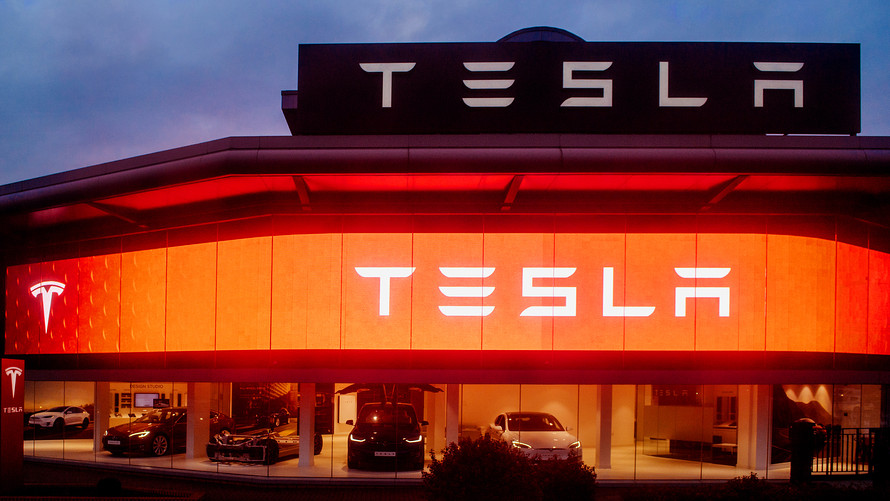Read The Full Article On: Markets
Even though Tesla shares have sold off sharply from their all-time high close in February, Bernstein thinks they’re still too high.
Shares of Tesla were down roughly 40% from February’s high of $917 per share through Friday, when the stock closed around $547 per share. On Monday, the Elon Musk-led automaker’s stock shed another almost 15% amid a broader coronavirus-induced market sell-off as investors shrugged off the Fed’s Sunday emergency actions.
At levels seen on Friday, “Tesla stock remains high enough that it takes very aggressive assumptions on its future auto business to justify its valuation on a DCF basis,” Toni Sacconaghi of Bernstein wrote in a note Monday morning.
Lofty Tesla valuations “reflect a willingness among bulls to ascribe additional optionality to nascent markets such as battery technology, trucking, self-driving, and solar,” he said. But, even assuming a faster pace of long-term electric-vehicle adoption, a share price of roughly $600 would require Tesla to achieve the size and profitability of the world’s largest automaker — Volkswagen — within the next decade, Sacconaghi said.
“A baseline valuation of $300-500 for Tesla’s auto business may be more realistic,” he wrote. He maintained his market-perform rating and price target of $730 on Tesla.
Tesla is also not particularly well positioned in the current market roiled by the coronavirus pandemic, Sacconaghi said. The automaker’s stock has underperformed by 26% since the broader market’s peaks in February, according to the note.
This likely reflects the “fact that it has a highly transactional business model that is more vulnerable to economic weakness from coronavirus than high-growth internet-related companies who may fare better in a world of social distancing,” according to Sacconaghi.
He continued: “Accordingly, we see more near-term risk to estimates at Tesla than most other IT hardware or growth tech names.”
Still, he does not recommend shorting the automaker — “shorting Tesla on this basis is more a market/COVID-19 call than a stock call,” he wrote.

